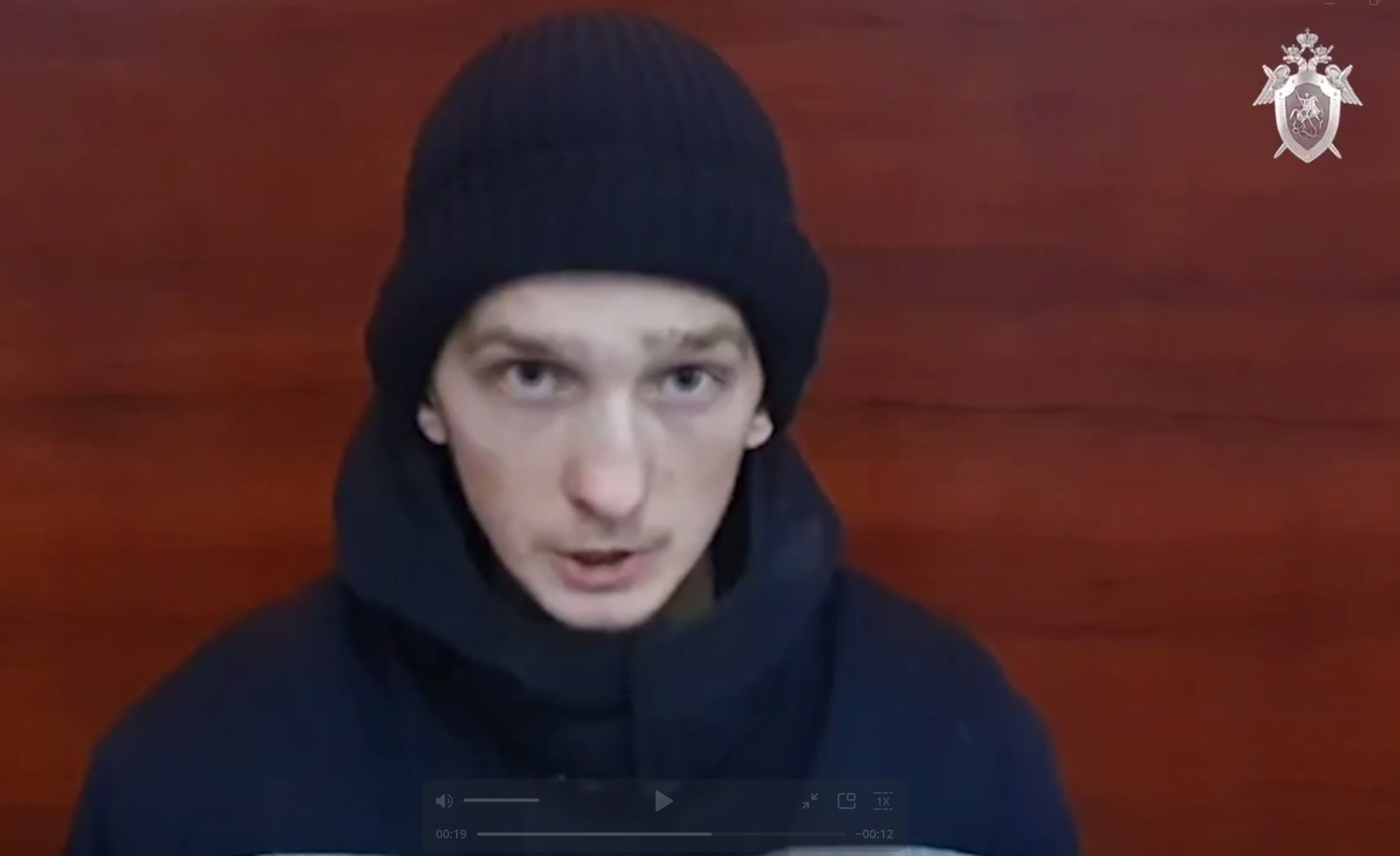Ukrainian POW sentenced to life for defending Mariupol in brutal Russian replay of fake occupation court ‘trial’

A Russian court of appeal has changed to life imprisonment the 22-year sentence passed by an unrecognized occupation ‘court’ against Ukrainian prisoner of war Denys Rashplia. The sentences were clearly based on ‘confessions’ tortured out of the Ukrainian POW, with the ‘prosecution appeal’ and massively increased sentence an additional cruel form of torture.
Russia began mass ‘trials’ of Ukrainian prisoners of war in 2023, with Denys Rashplia one of the first victims. The vast majority of such ‘trials’ are held in the Russian proxy ‘Donetsk and Luhansk people’s republics’ [‘DPR’/’LPR’], with massive sentences passed by kangaroo occupation ‘courts’ effectively in secret, and then reported by Russia’s prosecutor general or Investigative Committee. The prisoners of war [POW] are deprived of any access to independent lawyers, their families or international observers, and the only ‘evidence’ to back the charges is typically in the form of videoed ‘confessions’ which the POWs appear to be reading off by heart. The charges are almost always the same, with Ukrainians defending their own country against the Russian invading army accused of the latter’s war crimes, specifically its killing and ill-treatment of civilians.
On 23 June 2023, the Russian newspaper Kommersant reported that Rashplia was to be ‘tried’ for supposed mass killing of civilians in Mariupol. It was clear from this first account that the Ukrainian POW, who is a driver from the 36th Maritime Brigade, was to be ‘tried’ by the so-called ‘DPR high court’, and that the ‘prosecutor’ mentioned was, in fact, a ‘prosecutor’ from this illegal formation. Both this ‘prosecutor’ and Russia’s Investigative Committee were claiming that, from 9 March to 9 April 2022, Rashplia had been deployed on three checkpoints and had killed 16 people and at least wounded nine others. It seems clear that this was based on Rashplia’s ‘confession’, with the Ukrainian having, allegedly, added (in the course of this ‘testimony’) that there could have been more victims, but that those wounded “had crawled into the bushes away from his fire”.
From almost immediately after its full-scale invasion of Ukraine until mid-May 2022, Russia subjected Mariupol to mass bombing and shelling, hitting apartment blocks, hospitals, schools and other civilian targets. The invaders also prevented civilians from fleeing to Ukrainian-controlled territory, with those who risked the journey in private vehicles likely to be shot at and killed. Russia’s attacks on civilian targets have been fully documented, and there is a huge weight of video and photographic footage and witness testimony. All of this has led to damning reports on Russia’s indiscriminate bombing of civilians by, among others, the UN’s Independent Investigative Committee on Ukraine and the UN’s Office of the High Commissioner on Human Rights. Both bodies have also condemned Russia’s widespread and systematic use of torture, including against Ukrainian POWs.
Russia’s fake ‘trials’ of Ukrainian defenders on charges pertaining to the killing, wounding and ill-treatment of Ukrainian civilians are of particular cynicism. The aggressor state’s use of horrific forms of torture (in particular, electric shocks) is a further war crime against members of a group who have protected status under international law.
If Russia genuinely had proof of any of the alleged killings of civilians in this case, they would not have hidden Rashplia and his ‘trial’ in occupied Donetsk oblast where he had no access to independent lawyers nor to observers from the UN or International Committee of the Red Cross. There are no grounds for believing that his ‘trial’, reported by Russia’s Investigative Committee after sentence had been passed, had anything in common with rule of law.
By 21 December, when Rashplia’s sentence was announced, Russia’s ‘trials’ had taken on a conveyor belt quality. The POWs are virtually always accused of the same charges under Russian legislation, and Rashplia’s case was no exception. He was accused of the murder and attempted murder of two or more people carried out by an organized group in a manner dangerous to the public and motivated by enmity and hostility towards a social group’ (various parts of Articles 105 and 30 of Russia’s criminal code); and of ‘‘using prohibited means and methods in an armed conflict’ (Article 356 § 1).
He was found ‘guilty’ by the so-called ‘DPR high court’ (presiding ‘judge’ German Ivanovich Aleksandrov) on 21 December 2023, with a sentence in total of 22 years in a maximum security prison colony.
The next that was heard was a press release on 21 March 2024 from Russia’s first court of appeal in general jurisdiction cases. This announced ‘examination’ of an appeal against the ‘DPR’ sentence lodged by Russia’s public prosecutor. While the press release mentioned Rashplia, the information about the course of the ‘trials’ on the website is ‘secret’, with it known only that the presiding ‘judge’ was Tatyana Nikolayevna Ulyanova. This blitzkrieg ‘appeal’ resulted in the claim that the original court had wrongly applied criminal legislation, and in a new, life sentence, with this to be in a special (especially harsh) regime prison colony. This new sentence is now, it seems, only subject to appeal through a cassation court.
See also:
Russia tortures more Ukrainian POWs and sentences them en masse to 27 years for defending Ukraine
UN report demolishes Russia’s attempts to blame Ukrainian POWs for its atrocities in Mariupol
Huge mass ‘sentences’ after fake trial of Ukrainian POWs whom Russia accused of its own war crimes





